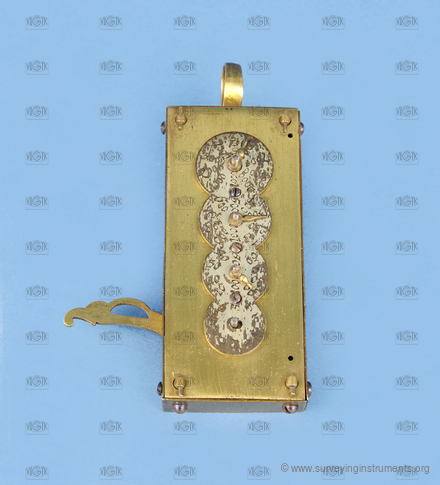Zeměměřické a astronomické přístroje používané na území ČR od 16. do konce 20. století
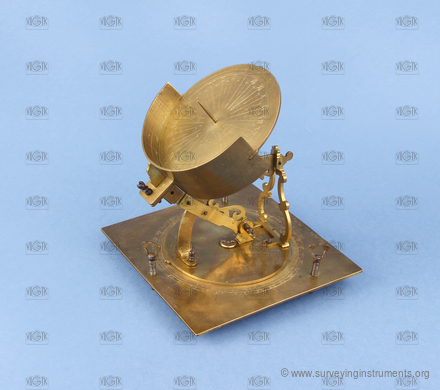
Anton Firnsin
More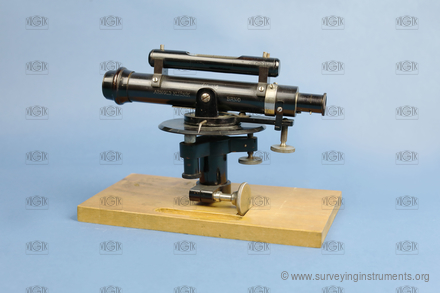
Arnold Klíčník
More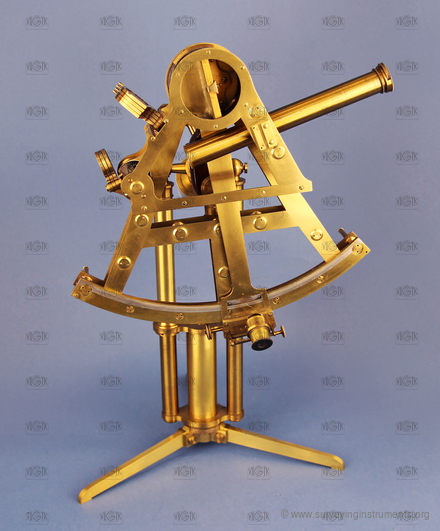
Berge
Matthew Berge (1753-1819), English designer of mathematical and optical instruments. Mr. Berge has been employed by Jesse Ramsden for more than 30 years. After Ramsden's death in 1800, he completed all major unfinished instruments and continued to sell them.
M. Berge was the younger brother of John Berge (1751? - 1808), who worked for Peter Dollond…
More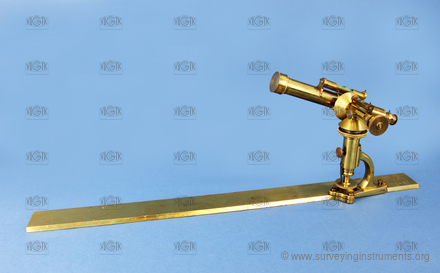
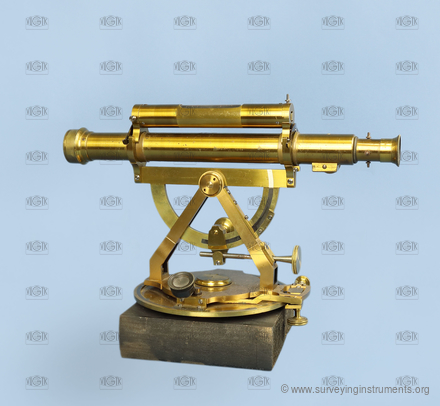
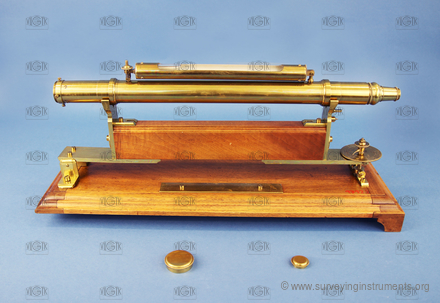
Brander
Georg Friedrich Brander manufactured mechanical and optical instruments for astronomy, geodesy and meteorology in Augsburg. In 1737, he made the first mirror telescope in Germany. (The protractor from 1770 had still been in the collections of the Czech Technical University in Prague in 1869.)
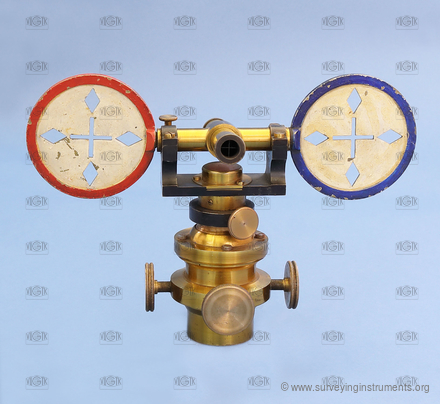
Breithaupt
In Kassel in 1762, the Hessian court mechanic Johann Christian Breithaupt founded a company of the same name. It still exists today. It has gone down in history with not only a number of successful designs of astronomical and geodetic instruments, including mining-measuring and military, plane table mapping and geological surveying equipment, but…
More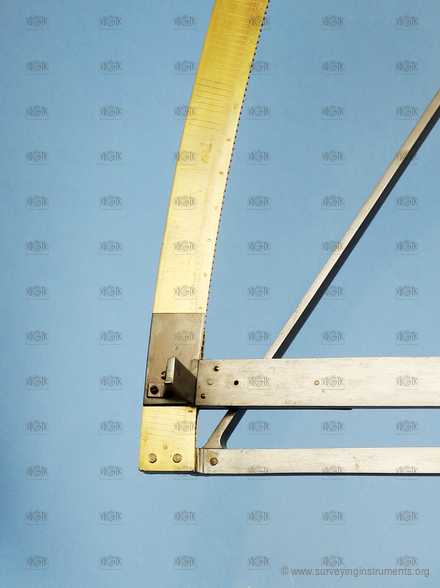
Bürgi
More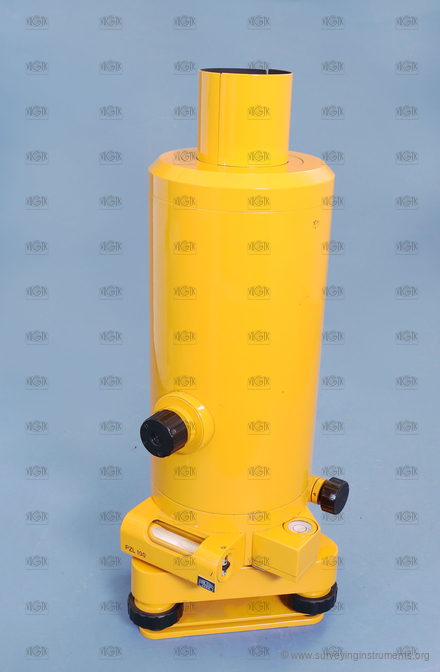
Carl Zeiss Jena
Zeiss founded a plant for precision mechanics and optics in Jena in 1846. Important collaborators included, for example, E. Abbe and O. Schott. In 1892, the company manufactured a stereoscopic rangefinder with a base in the instrument of the name Zeiss stereotelemeter according to the design of Henri de Grousillier. The company researcher Carl Pulfrich…
More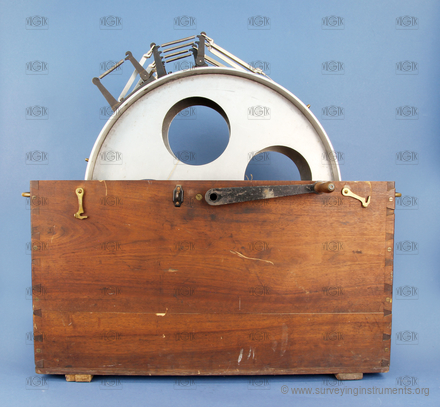
Carpentier
More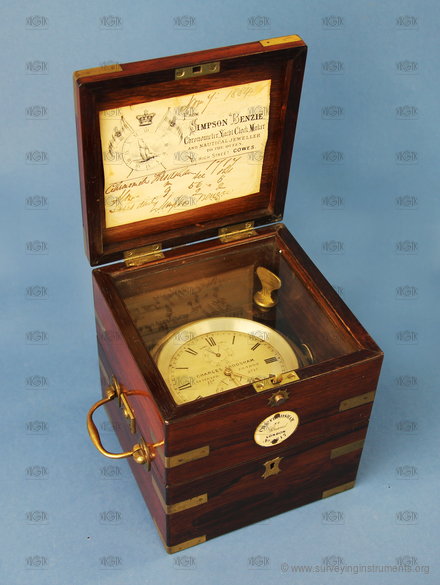
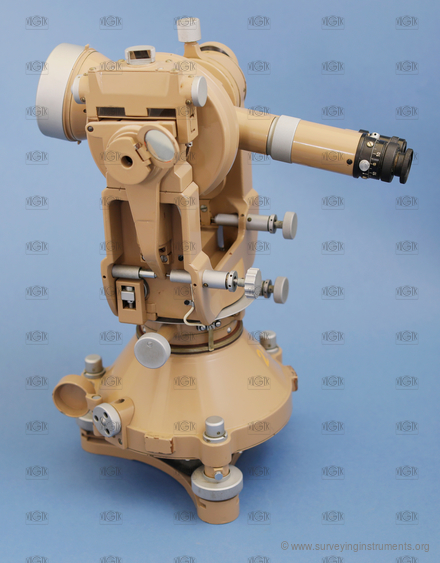
CNIIGAiK
Centralnyj naučnoisledovatelskij institut geodezii, aerofotosjomky i kartografii made in small series special astronomical and geodetic instruments, including the triangulation theodolite OT 2; it is said to differ from the Wild T3 by the smaller diameter of the circles. The institute is best known for its polyconic projection from 1950, and currently…
More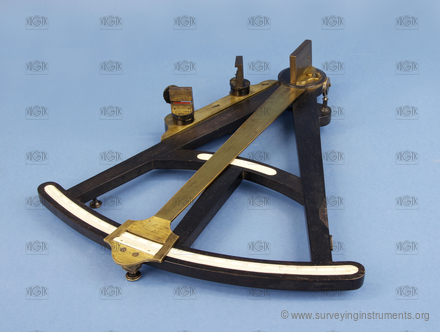
Dollond
Peter Dollond established a workshop for the production of optical instruments in 1750. It was joined in 1752 by his father, the well-educated John Dollond, who until then had traded silk (same as his father). The company's reputation grew rapidly. J. Dollond is considered to be the creator of achromatic telescopes, which he started selling in 1758; in…
More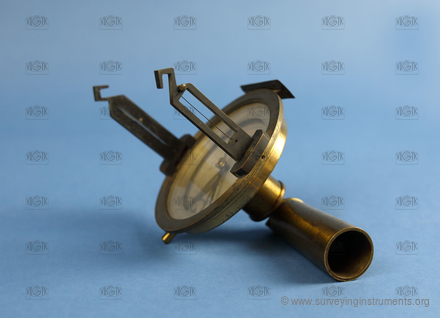
E. Kohn
More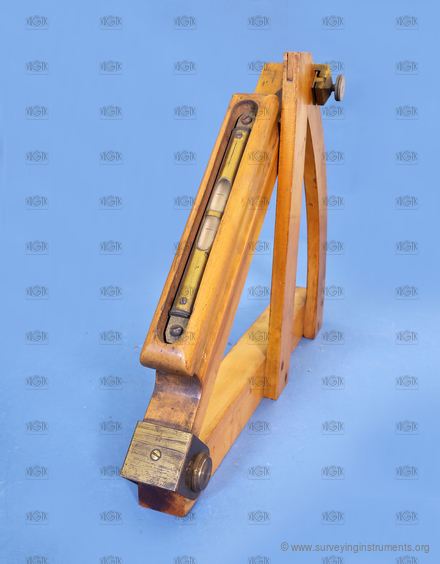
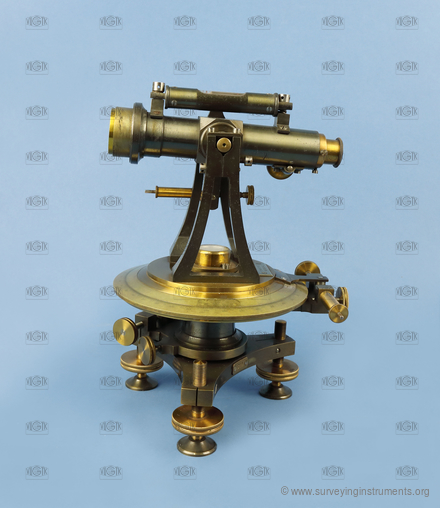
Eichler
In the period around 1890, probably until the 1930s, the Hermann Eichler company produced geodetic instruments and tools, including one minute theodolites, in Ústí nad Labem.
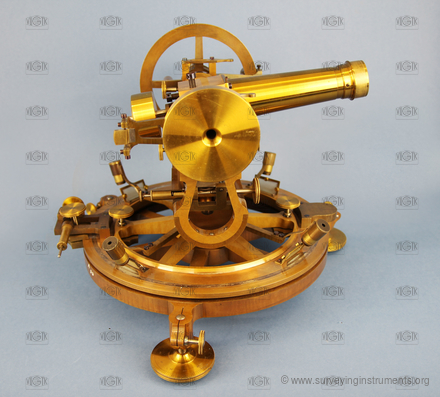
Ertel
Traugott Leberecht von Ertel took over the " mathematical workshop" from his older business partner, the well-known designer Georg von Reichenbach, in Munich in 1821. He focused on the production of precise, high-quality geodetic instruments (especially theodolites) and astronomical instruments (transit telescopes). From 1834, the name was changed to T.…
More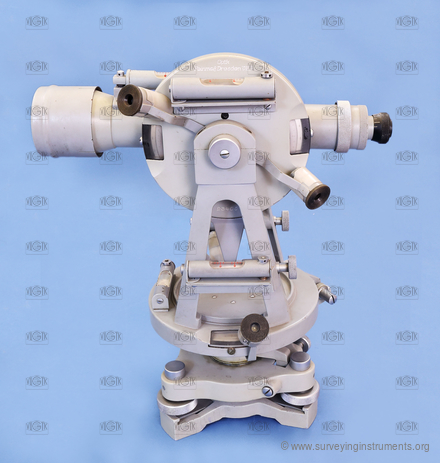
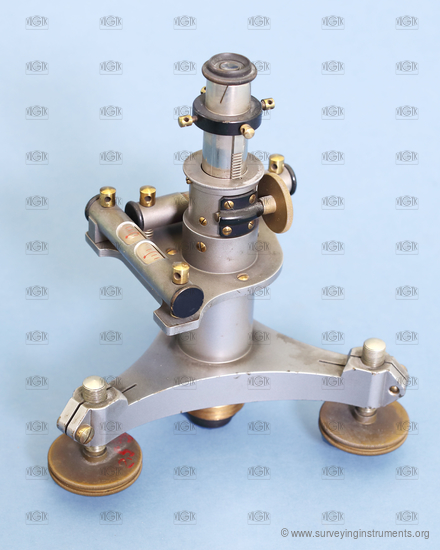
Fennel
Otto Fennel, a designer starting at Breithaupt, founded a company in Kassel in 1851 to manufacture geodetic instruments and tools. In 1891, after the company was taken over by his sons Adolf and Otto, the name was changed to Otto Fennel Söhne. Adolf Fennel was one of the most important designers of geodetic instruments, he contributed to the modification…
More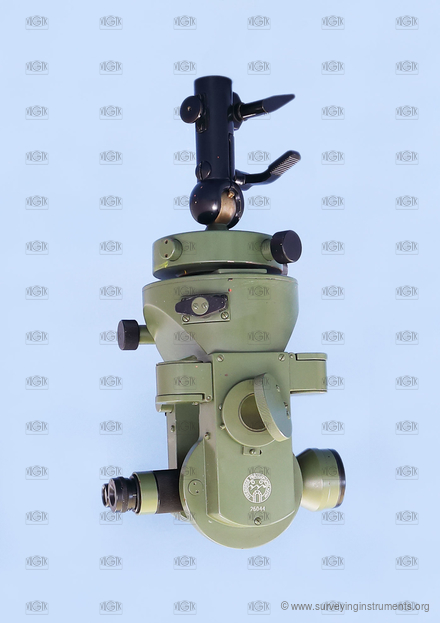
Freiberger Präzissions-Mechanik (FPM)
By the nationalization of Hildebrandt and the fusion of the traditional, lesser-known Freiberian company Pessler, the Freiberger Präzisions-Mechanik (FPM) plant was established in 1950. In the following years it significantly expanded its production, in 1965 it was integrated into the VEB Carl Zeiss Jena plant. In the Czechoslovak Republic the second…
More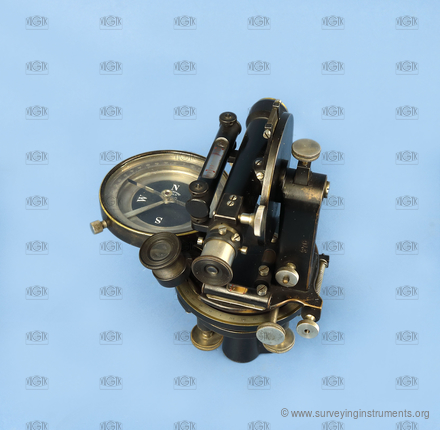
Fromme
The Viennese company Gebrüder Fromme of the brothers Adolf and Carl Fromme was established in 1884 as a successor company to the workshop of Joseph Perfler, founded (perhaps) in 1835. (Some sources consider the year 1835 to be the date of establishment of Fromme.) The company produced quality geodetic instruments and other products of fine mechanics (e.g…
More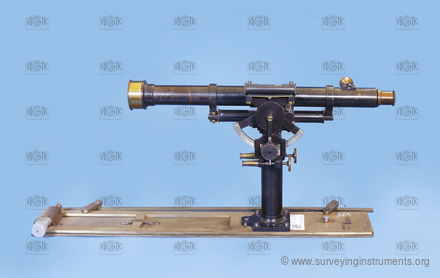
G. CORADI. ZURICH
More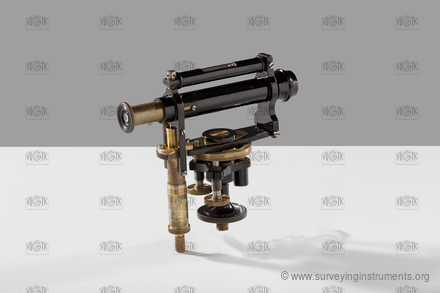
Ganser
In 1900, by Otto A. Ganser, the fine mechanics workshop was established in Vienna, offering levelling instruments and plane tables, geological compasses, rain gauges, automatic level gauges, eyepiece micrometers and for the army and navy e.g. artillery sights and rangefinders.
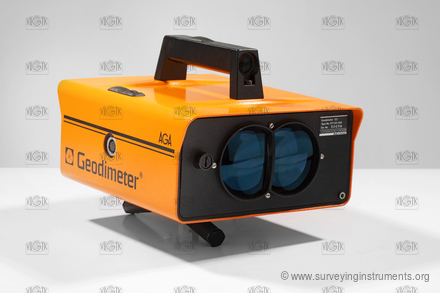
Geodimeter
More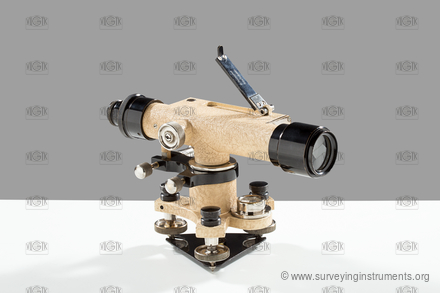
H. Hochapfel
Hochapfel (perhaps) by the late 19th and early 20th century, the H. Hochapfel company in Saarbrücken manufactured binoculars, geodetic and other optical instruments.
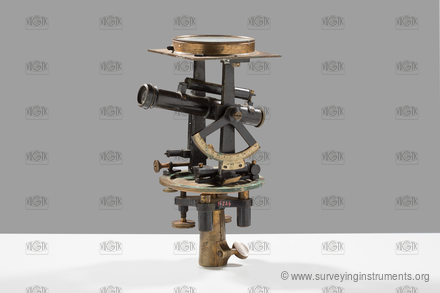
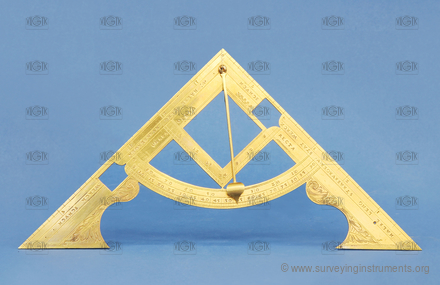
Habermel
More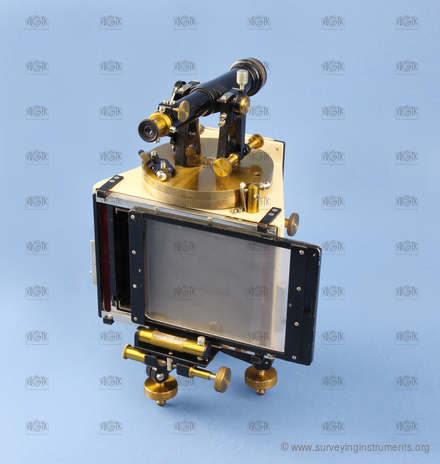
Heyde
Gustav Heyde after his apprenticeship and internship, for example, at Starke & Kammerer, founded a fine mechanics workshop in Dresden in 1872 (Gustav Heyde - Mathematisch-mechanisches Institut Optische Präzisions-Werkstätte). Over time the company gained a worldwide reputation in the manufacture of cameras and geodetic and astronomical…
More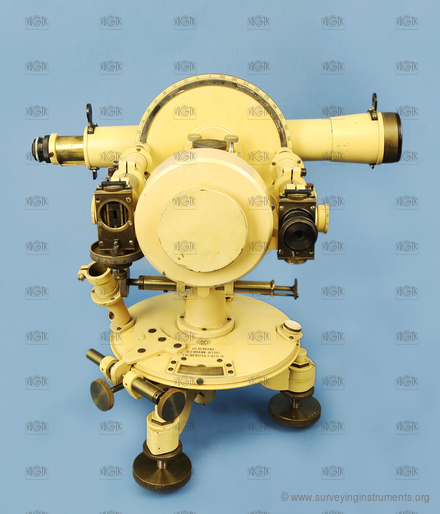
Hildebrand
In 1873, Max Hildebrand became a business partner of August Lingke & Compagnie in Freiberg, Saxony. He had gained experience in Paris, England and in the world-famous Berlin workshop Pistor und Martins. For several years, the devices bore the brand name Hildebrand früher August Lingke, around 1880 it was changed to Hildebrand & Schramm. The…
More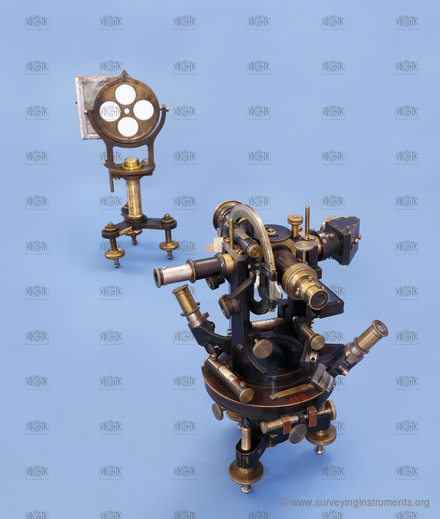
J. & J. Frič
Brothers Josef and Jan Frič established "The Workshop for Precision Mechanics" in Prague in 1883, for which they themselves made special devices for division of circles, grinding of lenses, etc. The company Josef & Jan Frič (the company name was used in several variations; after the death of younger Jan F., his brother also included his name and the…
More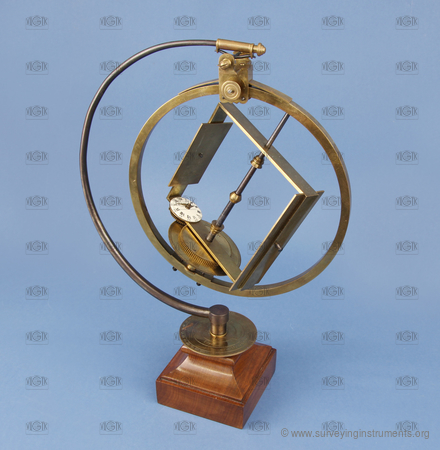
Johan Paulus Fischer
More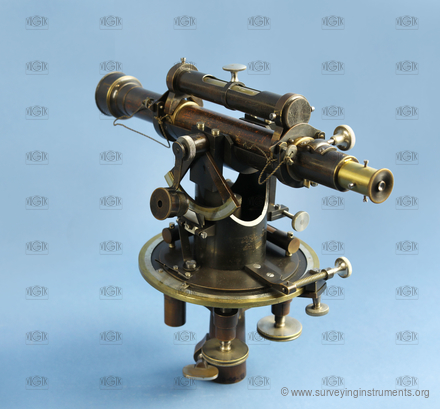
K. Grund
More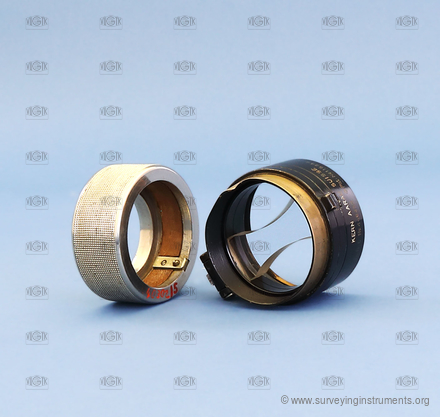
Kern
In 1819, Jakob Kern founded a company in Aarau, Switzerland, which during its existence, ie. until 1988, when it was sold to the rival company Wild Heerbrugg and less than three years later within Leica company closed down, made several world - famous designs of classical and electronic geodetic instruments. Until 1969, members of the next generations of…
More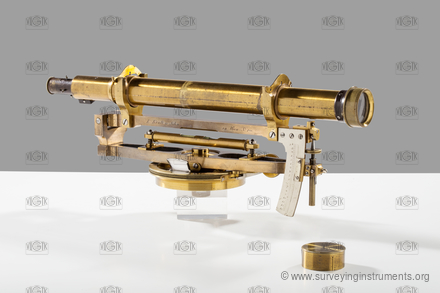
Kraft
The mechanic Carl Eduard Kraft (Karl E. K.) established his own workshop in Vienna in 1824. His son Wilhelm Kraft took over (probably by marriage) the workshop Sadtler. After 1854, the production was branded Kraft und Sohn. The company mainly produced mining-measuring compasses, meteorological instruments, the Horsky planimeter, pantographs and other…
More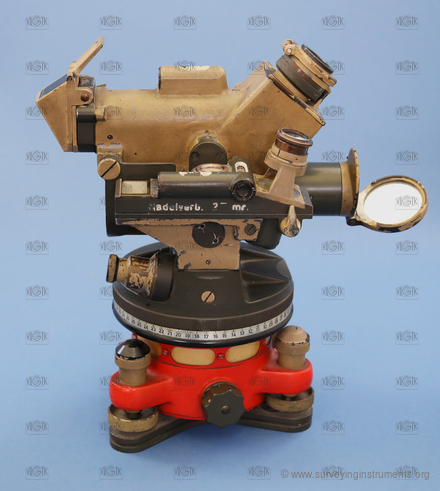
Leitz
In 1864, the mechanic and the optician Ernst Leitz joined the Optical Institute in Wetzlar, founded by Carl Kellner. In 1869 he became the sole owner. He manufactured chemical and physical apparatus, optical devices and mainly microscopes - in 1899 the serial number 50,000 was reached , 8 years later 100,000. The management of Ernst Leitz GmbH was taken…
More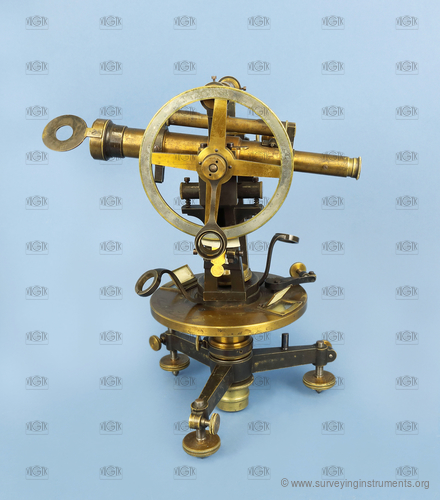
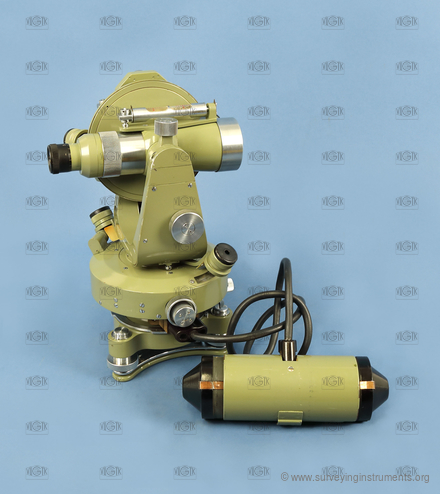
Meopta
In 1945, the company Optikotechna, belonging to Zbrojovka Brno since 1935, was nationalized by a presidential decree and merged with the companies Srb a Štys and several others. The new national enterprise in Košíře initially continued to manufacture the existing geodetic instruments of the Srb a Štys company.
From 1946, a successful theodolite Th…
More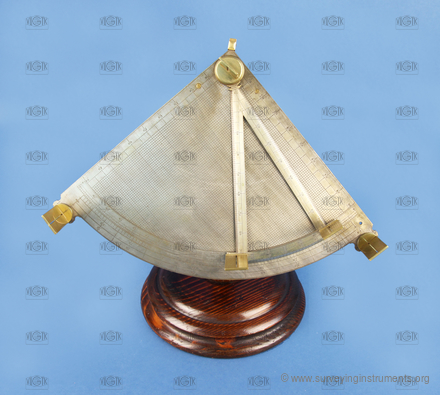
Meüréns
More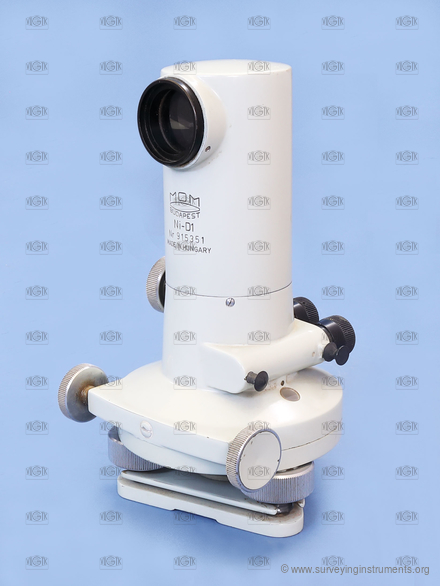
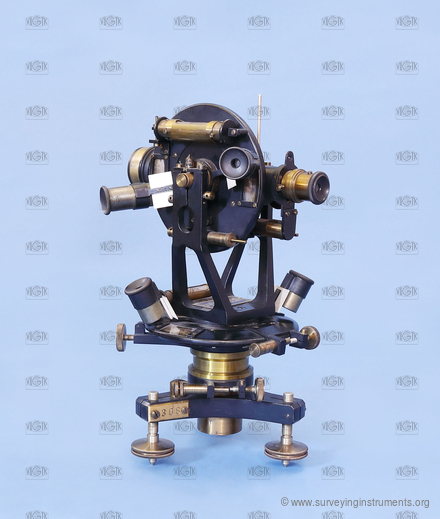
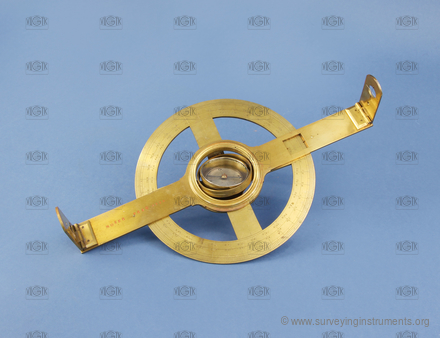
Moser
More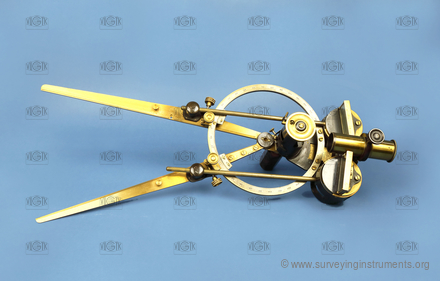
Müller
More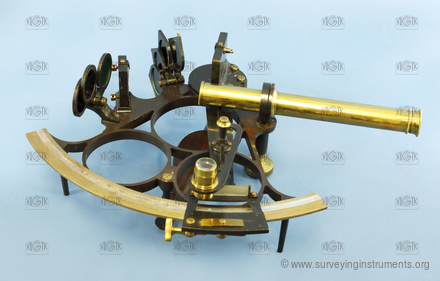
Negretti & Zambra
The Italians Henry Negretti a Joseph Zambra founded a company in London in 1850 that manufactured scientific and optical instruments, including surveying instruments.
They became suppliers to Queen Victoria, Edward VII, the Admiralty and the Royal Observatory. The company ran a successful photography studio; This activity is currently seen as the…
More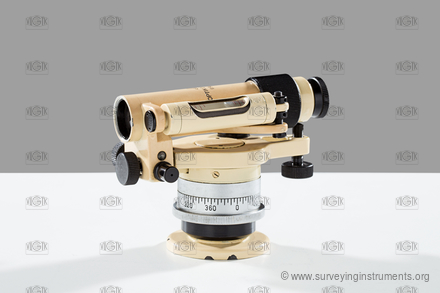
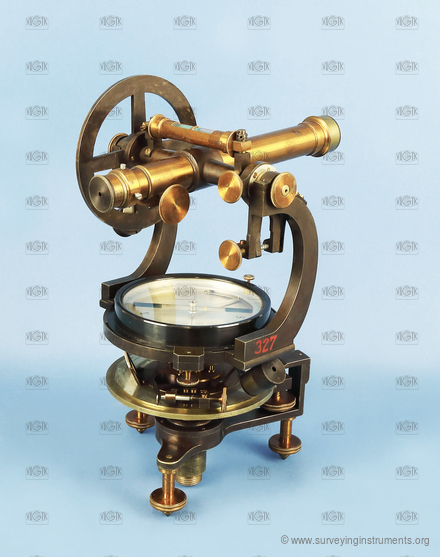
Osterland
Prior to 1872, Carl Osterland's company operated in Freiberg, producing not only geodetic and mine surveying instruments, but also valuable physical instruments.
According to available data, another local company, Pessler (Päsler, Peßler?), was focusing at the same time on the production of compasses, hanging compasses, angled heads, etc.
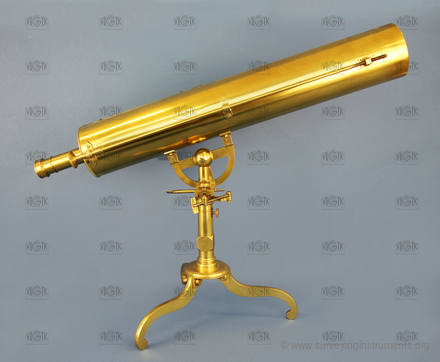
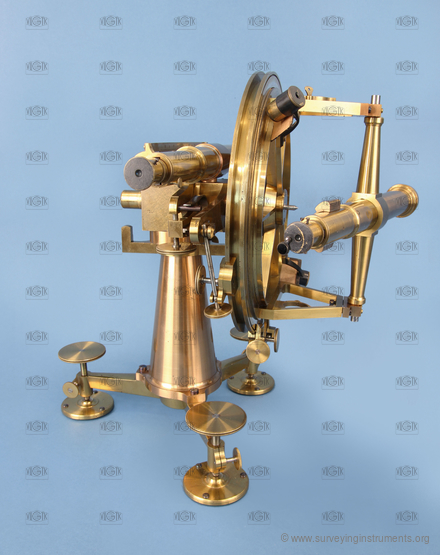
Reichenbach
The artillery officer Georg von Reichenbach with the support of the Bavarian Academy of Sciences, established a workshop for the production of mathematical instruments in Munich in 1802. Reichenbach had at that time already been known as an excellent designer of astronomical and geodetic instruments, who had gained work experience in English workshops.…
More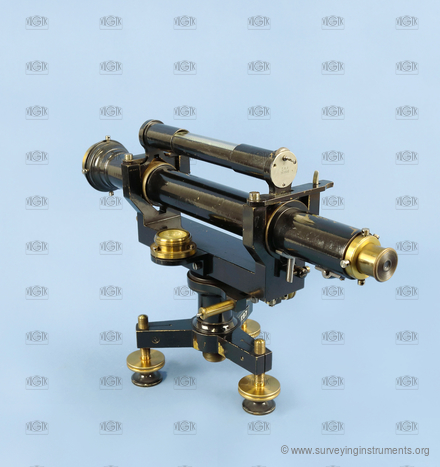
Reiss
In 1889, the former Prussian cadastral officer Herrmann Robert Reiss in Liebenwerda, in addition to running a mail order shop for surveyors and households, began producing poles and, in collaboration with Maibuhr & Hentschel, other geodetic tools. In 1896, the company Technisches Versandgeschäft R. Reiss was established. It became a major…
More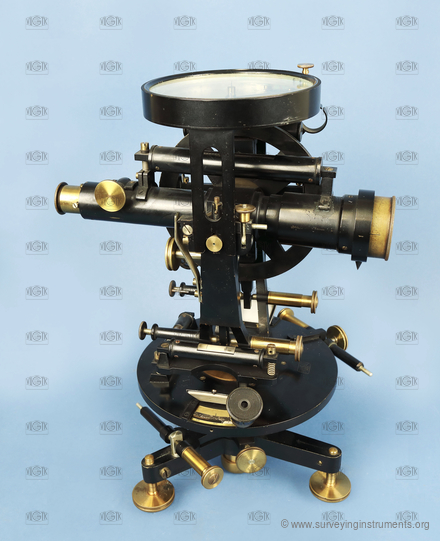
Rost
Rudolf Rost, a mechanic at Starke & Kammerer, founded a company in Vienna in 1888 bearing his name. In 1896, he registered with his younger brother August R. the company Rudolf & August Rost, which achieved considerable success and brought to market several original designs of geodetic and photogrammetric instruments, including large astronomical…
More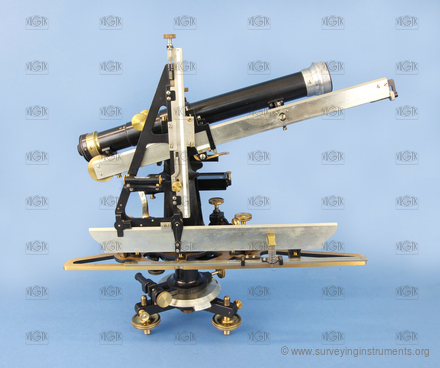
Sartorius
More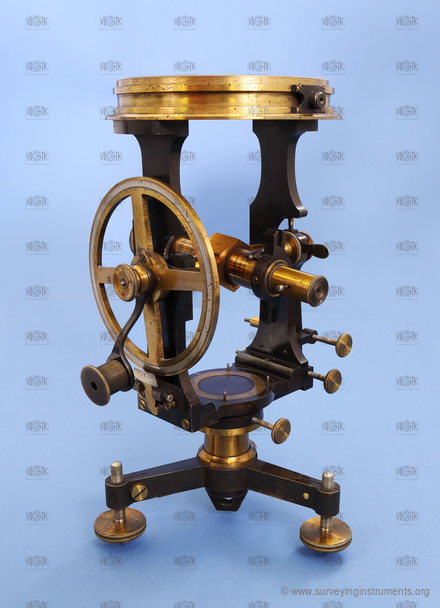
Schablass
Josef Schablaß (-ss) founded a company in Vienna in 1810 that produced compasses, mining compasses, dendrometers, levelling devices, plane tables, pantographs, sundials. In 1845 he won a bronze medal at the 3rd Trade Show.
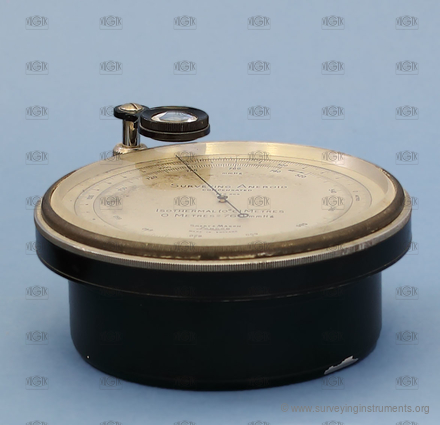
Short & Mason
The London firm, founded in 1875 by Thomas Short and James Mason, was engaged in the production of quality aeronautical and meteorological instruments, including aneroid barometers. In 1907 (according to other data 1900) it was taken over by the still existing American company Taylor Instrument Companies, which from 1851 was producing devices…
More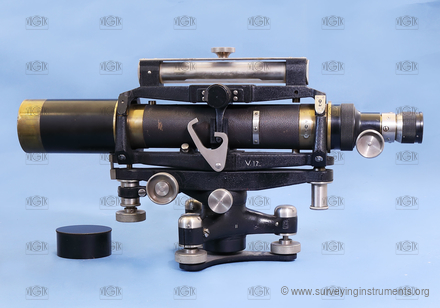
Societe des Lunetiers
More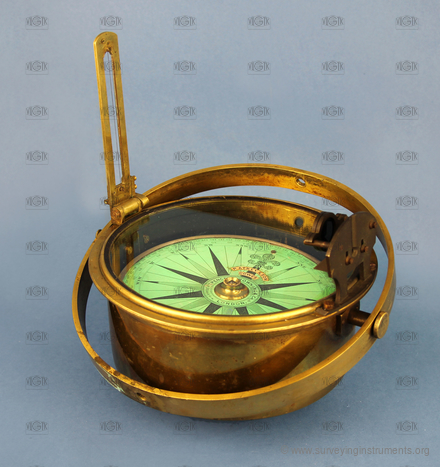
Spencer, Browning and Co
The company for the production of marine instruments (compasses and others) was founded in 1766. In 1846, the company was dissolved and the individual partners began to do business independently.<…
More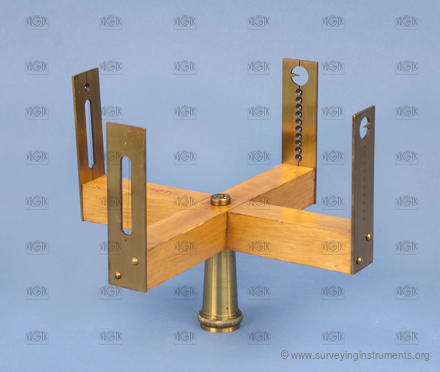
Spitra
In 1820, František Spitra started the production of measuring instruments in Prague. During the 19th century, three generations of this family, the son Václav Michal and the grandson Otakar, were in the business. Around the middle of the century, the well-known workshop of Mathias Richard Brandejs (-is, -ys) was active. It was then taken over in 1871 by…
More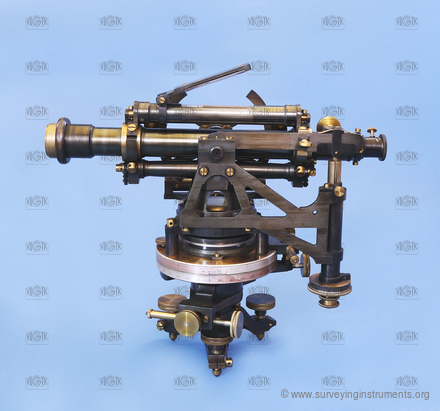
Sprenger
More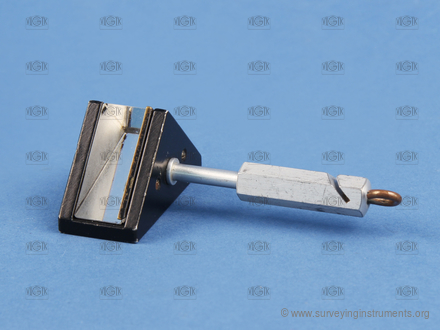
Srb a Štys
At the end of 1919, in the newly formed Czechoslovak Republic in Prague's Košíře, Jaroslav Srb and Josef Štys founded a plant of fine mechanics and optics. Both business partners had gained work experience at the Carl Zeiss plant in Jena. The company introduced modern forms of work organization, gained military contracts and acquired a number of…
More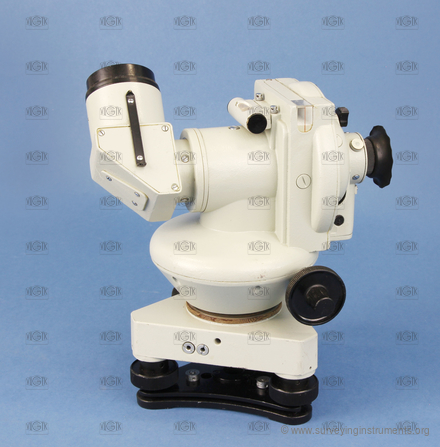
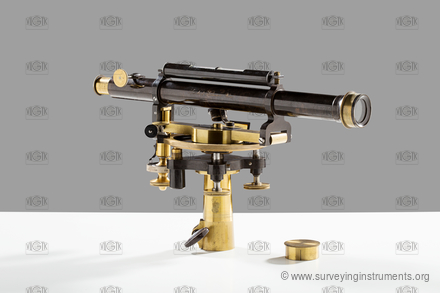
Starke & Kammerer
In 1866, the world-famous company Starke & Kammerer was founded. Its predecessor was the Mechanische Werkstätte des K. u. K. Polytechnischen Institutes in Wien (mechanical workshop of the Vienna Polytechnics, today's Technical University), founded in 1818. Gustav Starke, took part in the management of the workshop from 1854, and founded an…
More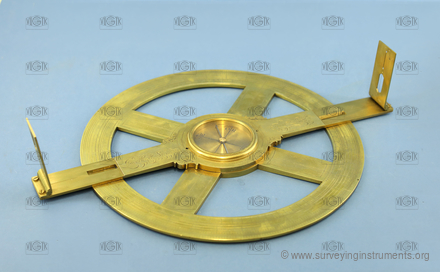
Steiur
More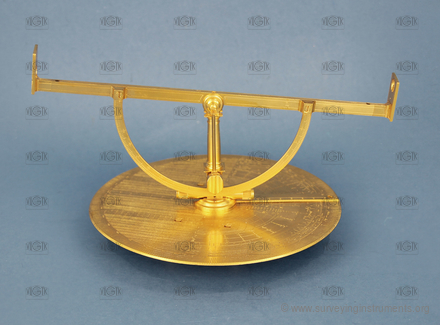
Stolle
More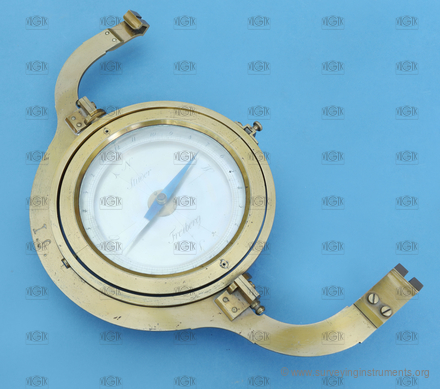
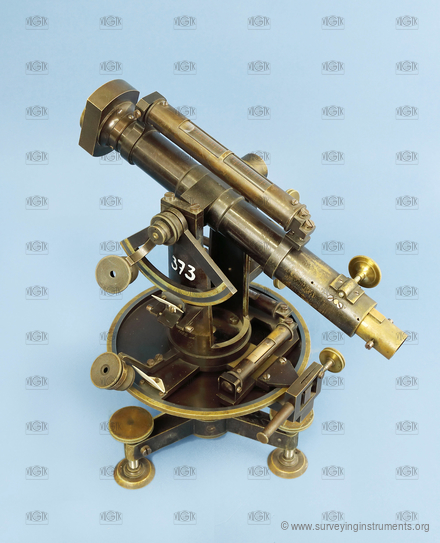
Süss
The German mechanic and designer Ferdinand Süss (Nándor S.) founded the Suss Nandor fele Praecizios Mechanikai Intezet in Budapest in 1900 for the production of fine mechanics and optics, which also included the production of geodetic instruments.
In 1934, the company was renamed Magyar Optikai Müvek (MOM). After the war, the MOM company also…
More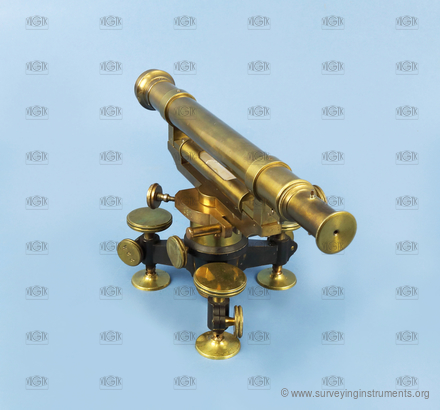
T. H. Schmidt G. Nochler
More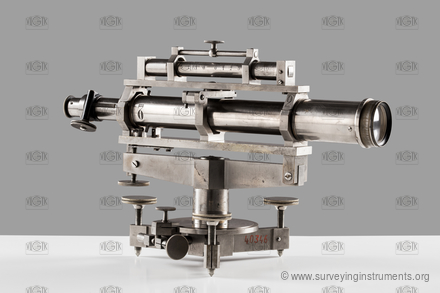
Tavernier - Gravet
The Paris based company Lenoir producing mathematical instruments was founded in 1820. In 1827, Gravet-Lenoir became the successor company, and in 1867, Tavernier-Gravet succeeded it. Slide rules were especially well known. The company ceased to exist in 1972.
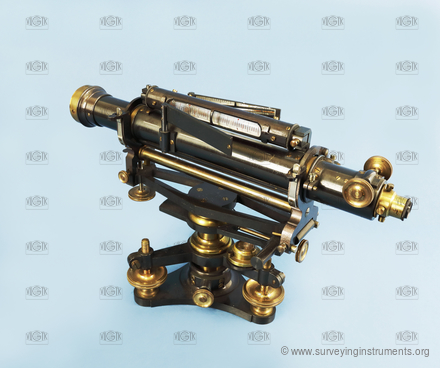
Tesdorpf
Ludwig Tesdorpf, an assistant in the workshops of Max Hildebrand in Freiberg and Carl Bamberg in Berlin, took over the Mathematical and Mechanical Institute of Zimmer brothers (Gebrüder Zimmer) in Stuttgart after graduating in technology from the Karlsruhe Institute in 1882. He continued to produce mainly geodetic instruments with some interesting…
More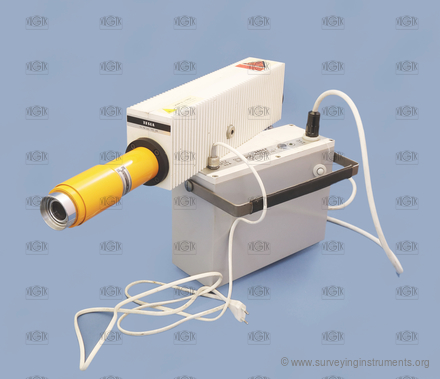
Tesla
From the 1960s the national company Tesla in Prague was successfully producing the He-Ne laser TKG205. The device Ni-Fe with either battery or mains supply was equipped with optics for beam scatter correction, it excelled in radiation stability and long life. It was often supplemented with a head to be used with the tripod by VEB Carl Zeiss Jena,…
More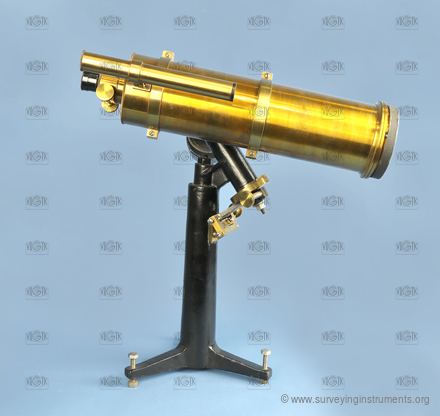
Viktor Rolčík
More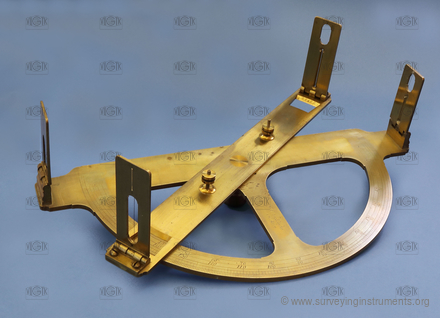
Voigtländer
After gaining work experience in London, Leipzig and Prague, Johann Christoph Voigtländer received a decree from Maria Theresa in 1763 for the "production of mathematical instruments in unlimited quantities ". (Some Austrian literature considers the year 1757 to be the year of the beginning of his activities.) In 1796, he designed a dividing machine for…
More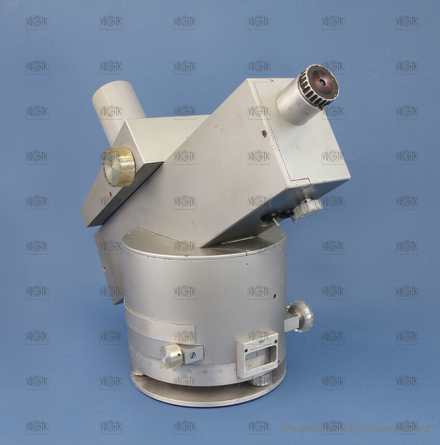
VÚGTK
The Research Institute of Geodesy, Topography and Cartography, founded in 1954 in Prague, based in Zdiby since 1979, produced special devices and tools in small series or only as a prototype, e.g. circumzenithal 100/1000 or field version 50/500, invar tapes, drafting cartographic sets, goniometers, also graphotheodolite by prof. Karel Neset and a…
More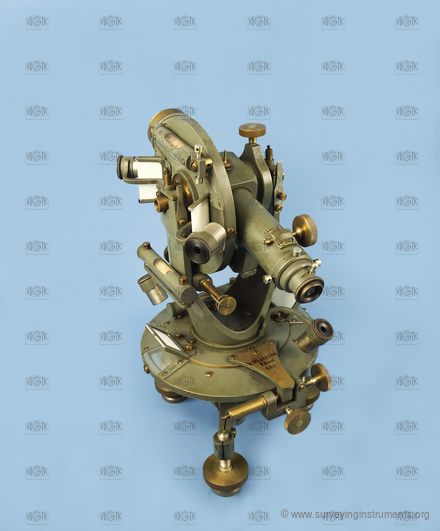
W. Stiegel & Sohn Kassel
More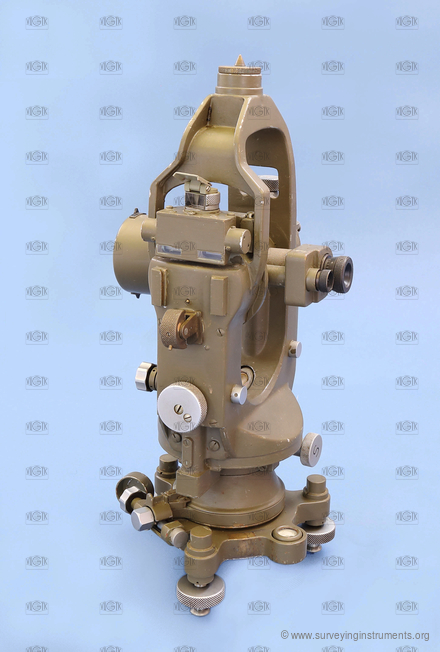
Wichmann
In 1873, the Wichmann brothers founded a company in Berlin, which developed into a leading German manufacturer of instruments in the field of optics and fine mechanics. In the geodetic field, it offered a practically complete assortment of theodolites, levelling devices and small tools (prisms, heads, tapes, pedometers, etc.). In addition, it produced…
More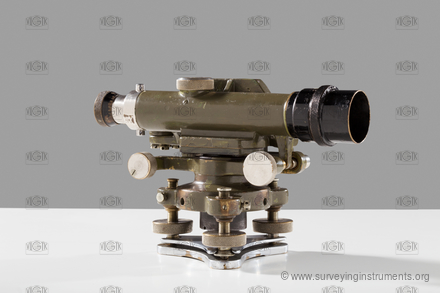
Wild Heerburgg
The excellent designer Heinrich Wild left in 1921 the geodetic department of the Zeiss plant in Jena, which he had founded in 1907, and in the Swiss town of Heerbrugg in the canton of St. Gallen founded a company for the production of geodetic instruments. His companions were Dr. Robert Helbling and Jacob Schmidheiny, who contributed financially. The…
More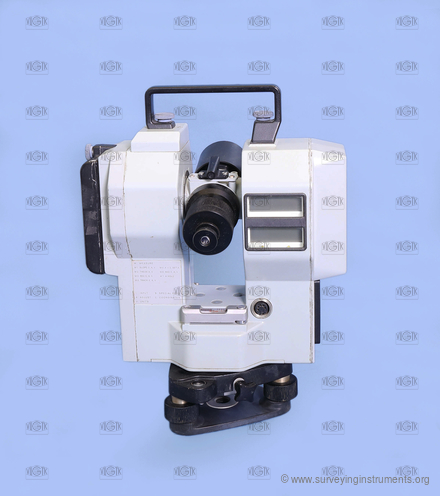
Zeiss Oberkochen
More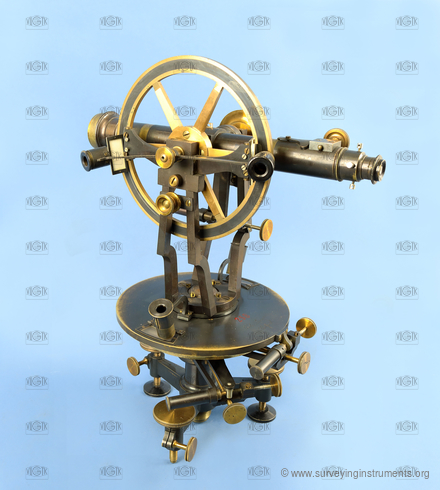
Zimmer
More